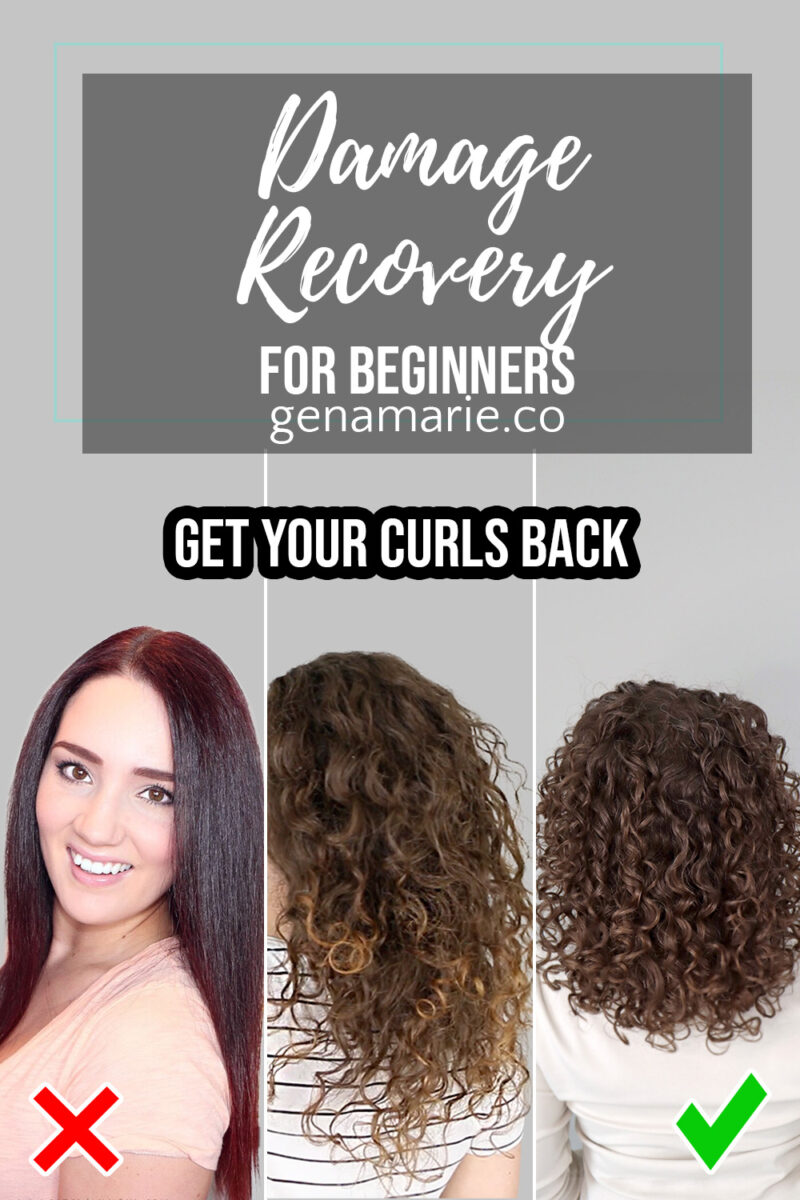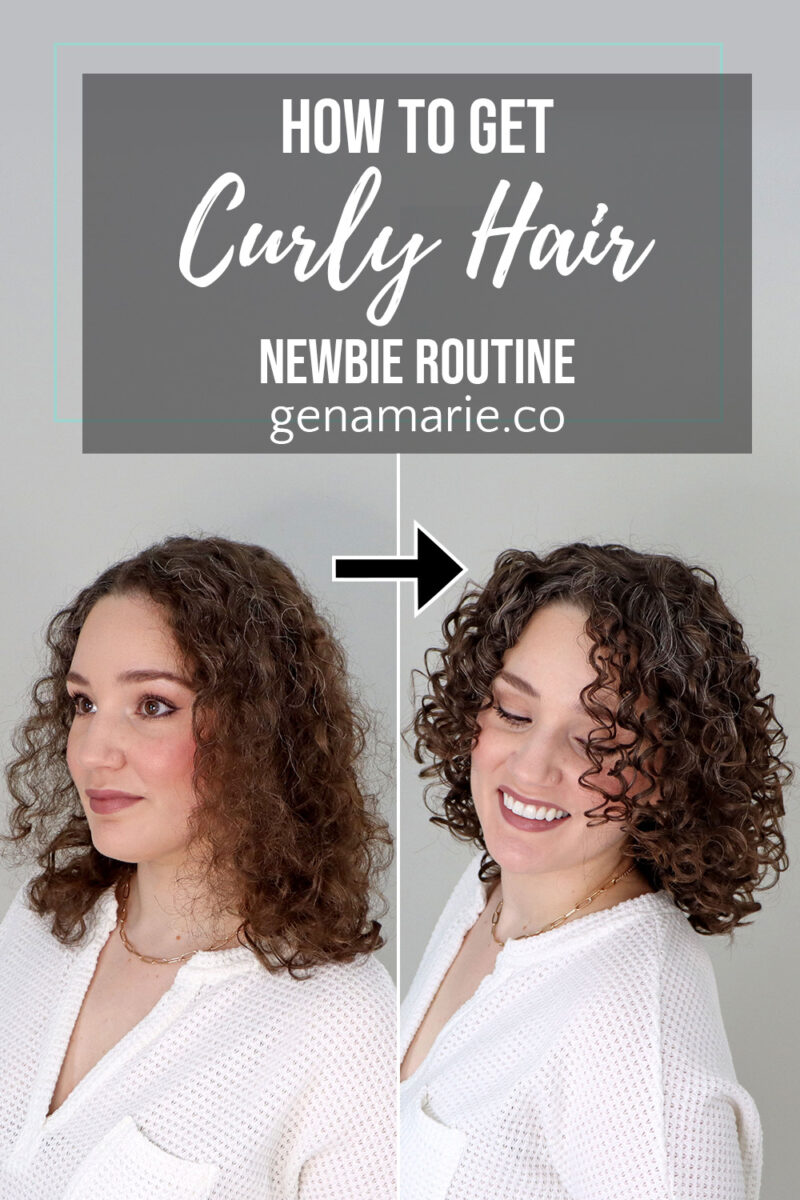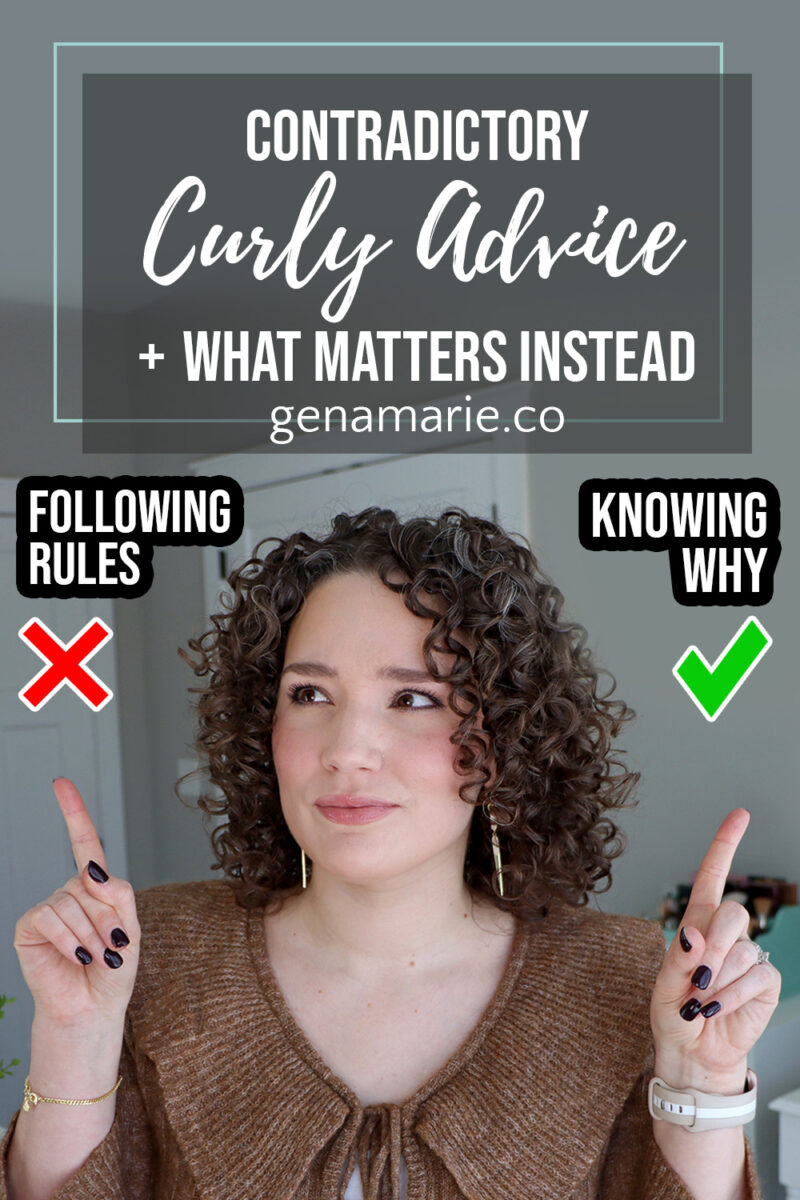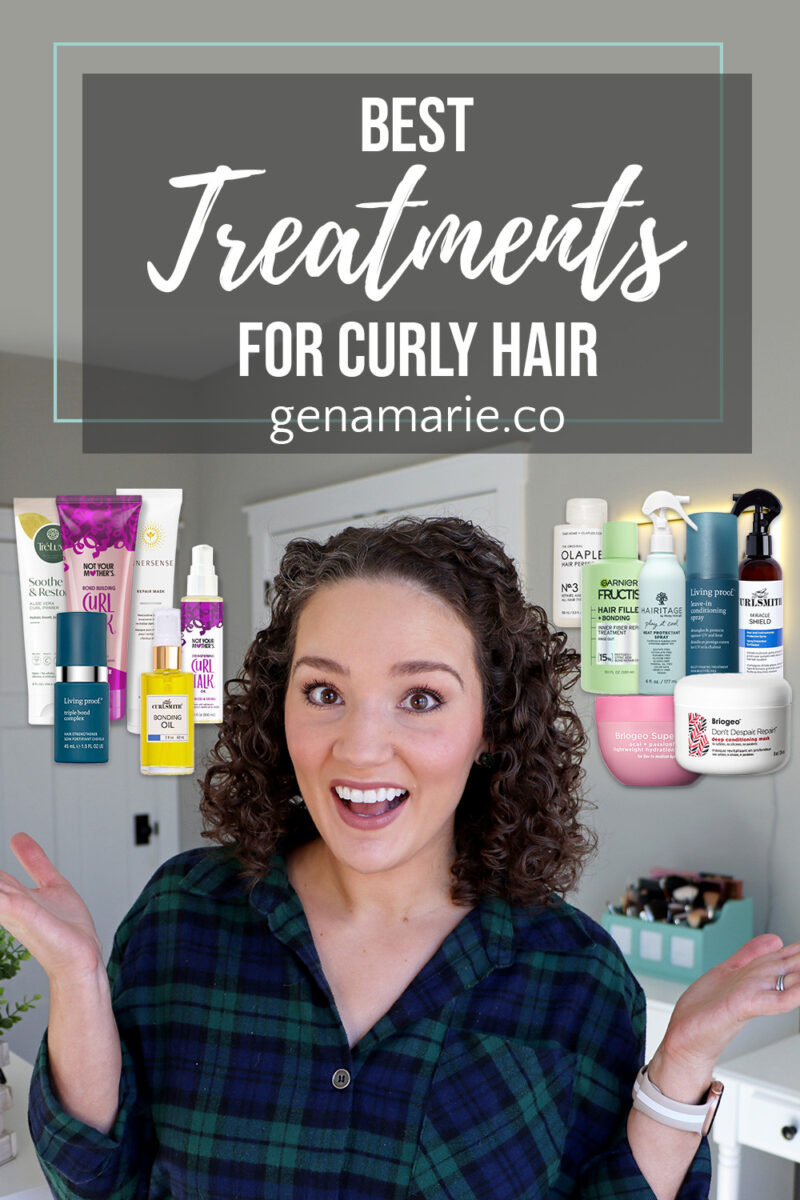
Damage Recovery for Beginners: How to Get Your Curls Back
If you’re trying to wear your hair curly and you feel like you’re doing everything right but your hair still doesn’t look how you want,

Can glycerin actually pull moisture from our hair? I put this theory to the test by using glycerin-heavy curly hair products in very dry weather. I’m sharing my results and my research findings that debunk the idea that you should be avoiding glycerin in dry climates. I also consulted with a professional product formulator to get their expert opinion on the effects of glycerin in dry air. I also share examples of glycerin-free curly hair products.
Glycerin, also referred to as glycerol, is a naturally occurring sugar alcohol present in natural lipids derived from vegetables, animals, or can be synthetically manufactured. Glycerin is naturally found on our skin and helps maintain moisture levels.
Glycerin is a type of humectant. Humectants are hydrating ingredients that attract water from their surroundings and hold onto it, reducing the rate of water evaporation in the air.
Each humectant can hold on to a different amount of water depending on its molecular structure. Glycerin can hold up to 25% of its weight in water. Another common humectant is propylene glycol, which can hold 20% of its weight in water.
These ingredients attract and hold onto water.
These ingredients attract water, hold onto it, and create a film or a barrier on the hair to further trap moisture in.
The theory is that in very dry air, where dew points are below 55°F, glycerin will pull water out of your hair and release it into the air because there is a lack of water in the air for it to pull, resulting in dry, frizzy hair. In contrast, when the air is very humid or greater than 65°F dew points, glycerin will pull water from the environment and cause your hair to frizz up and lose its curl definition. This theory is not well studied and is an educated guess due to the nature of glycerin and how it wants to maintain an equilibrium of water with its environment.
I used products that had many humectant ingredients, specifically glycerin, that were at the front of the ingredients list indicating they were at a greater concentration compared to other ingredients. I documented how my hair looked each day of the week in very low dew points. It’s currently January in Virginia and the air is very dry, with dew points as low as 7°F this week and a low percentage of humidity. Screenshots of the weather report each day are included in the video.
I also did not refresh all week because I wanted to truly see how my hair held up and if it became dry, frizzy, or limp.

On wash day, I did not scrunch out all of the gel cast because keeping that cast in helps protect the curls from frizz, especially if you’re styling your hair at night so that your curls don’t get frizzy when you sleep on them. I had no frizz on day 1 (wash day) and had a medium-strong cast in my hair.
I did not refresh at all. About 24 hours later I documented my day 2 hair, which had softened up nicely but still had a medium hold gel cast.
I did not notice any frizz until day 4 because by then the gel cast had released almost all the way. This is normal because as you go about your day, movement and friction against your hair cause the cast to gradually dissolve. This gives a softer look and more fullness but can start to develop frizz. A good quality gel like the one I used from Curlsmith can be reactivated by just adding water and the cast returns.
It’s hard to tell in the photos, but if you watch the video you will see the clips of my hair each day for more detail. I also noticed the bottom layer of my hair got looser which is normal for me because I have a looser curl pattern underneath. Usually, when I refresh my hair, this section shrinks back when I diffuse. However, without refreshing, these curls fall a little limp.
In conclusion, the glycerin and humectants did not have a negative effect on my hair. The frizz and looser curls underneath are all normal for me without refreshing. It’s normal for the curl definition to be reduced as the cast releases. My hair did not dry out, and it maintained moisture very well. How can I tell if it’s still moisturized? Well, when it’s dry, it looks dull and lighter in color, is very frizzy, stringy, and brittle feeling. When it’s moisturized the curl clumps remain, it looks shiny and darker in color, and it feels soft.
The reason these glycerin-rich products worked so well in dry air is that they’re well-formulated with film-forming humectants, oils, and butters. The gel is also a medium to strong hold gel that maintains its cast very well.
Aside from my experiment, I wanted to share my research findings surrounding glycerin and humectants. There is a lack of scientific research available when it comes to glycerin and this dryness theory, however, I uncovered some facts around glycerin and our skin. Skincare and haircare products are formulated with similar ingredients, especially moisturizers.
I wanted to consult with an expert, so I reached out to the founder of BounceCurl on Instagram, @herbalmmo, who has over 10 years of experience as a product formulator. I asked if glycerin can cause dryness in your hair in dry climates. Her response is below.

What are your thoughts on this perspective? I find it fascinating, especially the point about how glycerin is used as a preservative for natural extracts.
One of my biggest reasons for thinking this theory around glycerin causing dryness cannot be the case is:
Why would brands create products that only a certain percentage of people can use during a very specific range of dew points, during a specific time of year?
It would not make sense. Most of us are regular consumers that do not pay this close attention to ingredients.
We must look at the bigger picture and know that there is more to formulations than just one or two ingredients you can recognize on a product’s label. Products are formulated with multiple forms of ingredients for specific reasons that only a chemist, formulator, etc. understand.
So if it’s not glycerin causing your dryness, frizz, and lack of definition in the dry hair, then what is the issue?
So if you’ve eliminated all of the possible causes of your dryness and frizz above, and you’re still struggling and you think glycerin is, in fact, the culprit, here are some glycerin-free curly hair product recommendations. Note, these all still contain other humectants! You likely will not find a humectant-free curly hair product because humectants are necessary for moisturized curls. Oils and butters do not hydrate your hair, they can only help lock in existing hydration.
So, what are your thoughts on glycerin now? Do you feel like the research presented here debunks this myth, or do you think there is still not enough evidence? Do you plan to steer clear of glycerin? I’d love to hear your perspective!


If you’re trying to wear your hair curly and you feel like you’re doing everything right but your hair still doesn’t look how you want,

If you think you might have curly hair but don’t know where to start — or you tried before and your curls were frizzy and

Curly hair advice is full of contradictions — and no one explains how they’re supposed to work together. If you’ve ever tried to research curly

If your curls are falling limp, feel dry, or are showing signs of damage, it might be worth adding some targeted treatments into your routine.
One Response
Thank you for your research & experimentation. I’ll certainly continue to use products with glycerin & other humectants in central FL. My hair is 1. super dry, 2. high porosity from chemical relaxing over 50 years (last relaxer around May, 2021, so it’s grown out about 4” since & is now shoulder length including relaxed parts), 3. mixed white & brown (yes, ALL remaining brown portions behave & react to products so much better than the white & have much better curl hold-wish I’d stopped relaxing & just used gels when I was younger-who knew?). It loves coconut oil, Shea butter, homemade flax gel+oil (not a strong multi-day hold, but I can refresh on dry hair with flax gel-yay!). It love silicones, which I’m slowly adding back a little, tho I tried CGM without. Need research on silicones-could need myth-busting.